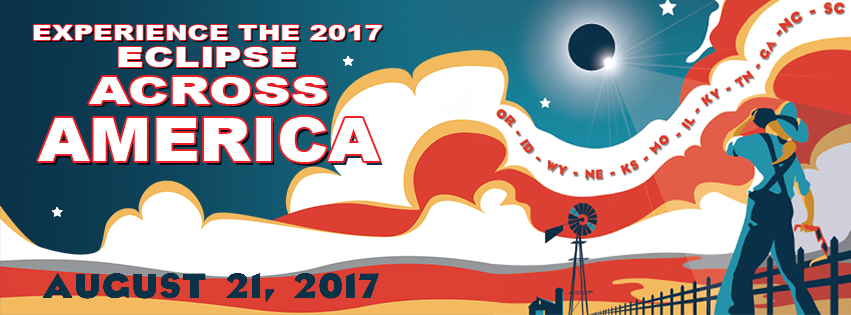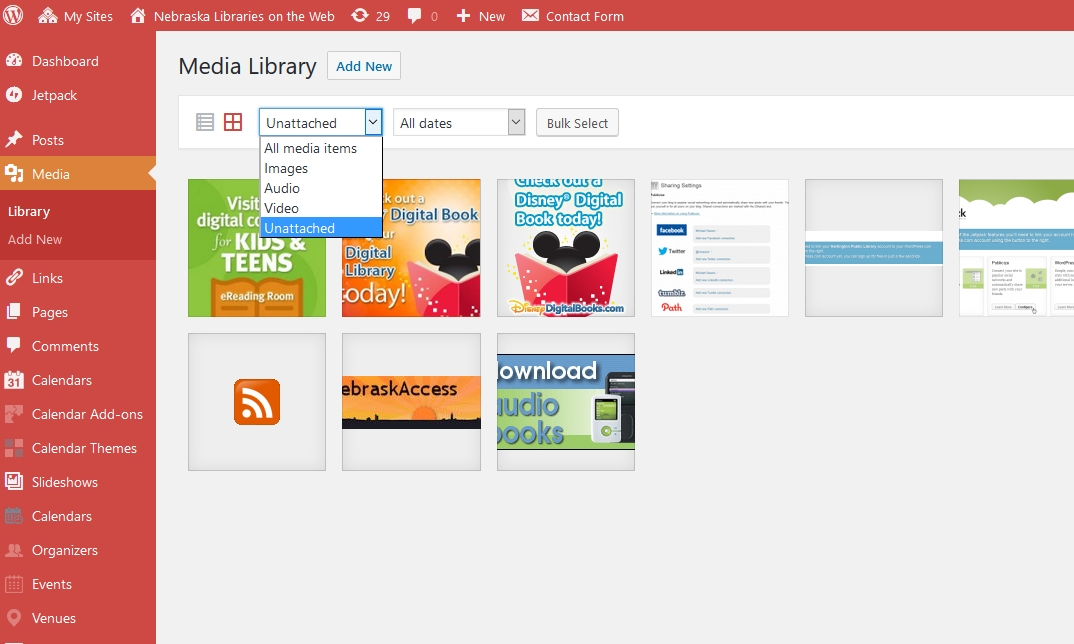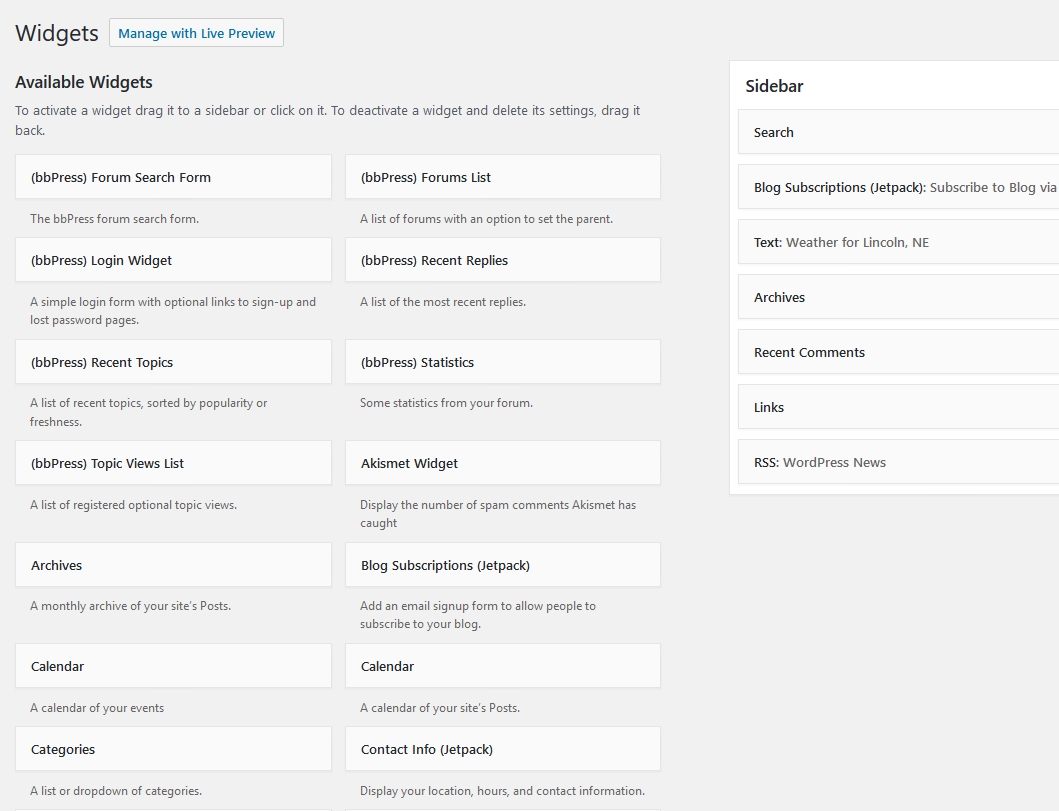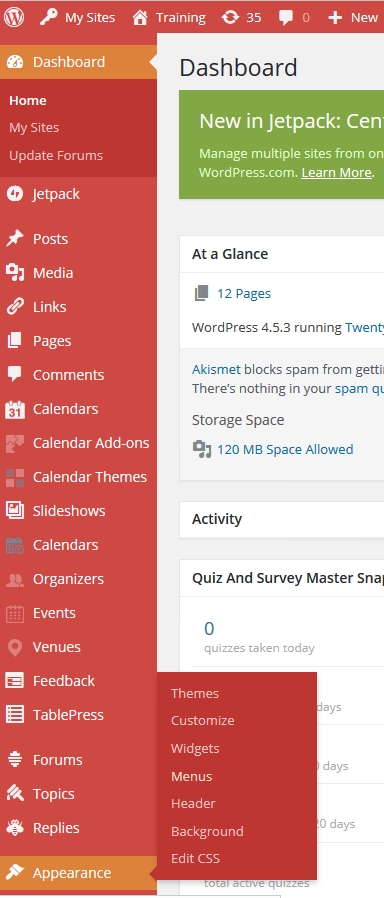Search the Blog
Categories
- Books & Reading
- Broadband Buzz
- Census
- Education & Training
- Friday Reads
- General
- Grants
- Information Resources
- Library Management
- Nebraska Center for the Book
- Nebraska Libraries on the Web
- Nebraska Memories
- Now hiring @ your library
- Preservation
- Pretty Sweet Tech
- Programming
- Public Library Boards of Trustees
- Public Relations
- Talking Book & Braille Service (TBBS)
- Technology
- Uncategorized
- What's Up Doc / Govdocs
- Youth Services
Archives
Subscribe
Tag Archives: free
Understanding MARC class registration now open!
Why would you use a 651 MARC tag instead of a 610 tag? What is the difference between a 260 tag and a 264 tag? Where do you put the note about closed captioning?
If you have questions about MARC catalog records or would like to learn more about entering records into your local system, join us for this seven-session asynchronous online workshop.
Topics will include:
- Fixed & variable fields, subfields, tags
- Title and statement of responsibility
- Edition
- Publication
- Physical description
- Notes
- Subject headings
- Series
- Main and added entries
- Special topics
This class will be held online from March 30th to May 15th.
Class participants will access the course website in order to read materials, discuss questions/issues in discussion boards, and post assignments. The instructor will interact with participants through discussion boards and optional web chats in order to offer feedback and provide explanations of material.
To receive full credit, participants must complete all assignments.
Prerequisite: Basic skills “Organization of Materials” or some library automation experience.
To register: Go to Understanding MARC 21 Bibliographic Records in the Nebraska Library Commission Training Portal. Registration closes March 20th.
This class is approved for the NLC Cataloging Certification Program. Courses are open only to Nebraska residents or those who are employed by a Nebraska library.
Contact Shoshana.Patocka@nebraska.gov if you have any questions.
(Understanding MARC class will be offered again in August of 2020.)
Posted in Education & Training
Tagged Cataloger, cataloging, cataloging certificate, class, Continuing Education, free, MARC
Leave a comment
Caring for the Children
Nebraska Memories Archive: Nebraska Orthopedic Hospital
If you lived in a small rural town in the early 1900s, would you expect your local physician to be able to handle a case of Pott’s disease or a cleft palate? In 1905, the Nebraska Legislature believed children with deformities needed extra help and funded what was first known as the Nebraska State Hospital for Crippled, Ruptured and Deformed Children but soon became the Nebraska Orthopedic Hospital. As reported in the Biennial Report of The Nebraska Orthopedic Hospital for the period ending November 30, 1908, the hospital was established “by act of the Legislature … to provide hospital care for the crippled and deformed of this state who by such hospital treatment might be converted from wards of the municipalities or counties from which they came into individuals who in one way or another might become self-sustaining and independent.” As further biennial reports show, the patients were not all children.
Half of the $10,000 budget for the first year was used to remodel the boys’ dormitory on the campus of the Home for the Friendless. The hospital then opened for patients on October 1, 1905. The first year’s report to the governor, while describing its work with 106 patients, outlines the problems of not having a newly built hospital with all the facilities needed to treat and rehabilitate patients.
In 1908, the Lincoln City Directory lists the hospital’s address as 2129 S. 11th Street and directs visitors to take the S. 10th Street streetcar. No matter how patients arrived, they came from all parts of the state, including Sioux County in the farthest northwest corner.
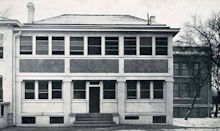 Over the next few years, the hospital took over additional buildings on the campus and extensions to the buildings were added, like the sleeping porches at right. Fresh air was considered important in recuperation, and without air conditioning, sleeping quarters with as many windows as possible made things more comfortable. As a number of the patients stayed for an extended period of time, various services needed to be provided such as a teacher to school classes and a gymnasium for physical training.
Over the next few years, the hospital took over additional buildings on the campus and extensions to the buildings were added, like the sleeping porches at right. Fresh air was considered important in recuperation, and without air conditioning, sleeping quarters with as many windows as possible made things more comfortable. As a number of the patients stayed for an extended period of time, various services needed to be provided such as a teacher to school classes and a gymnasium for physical training.
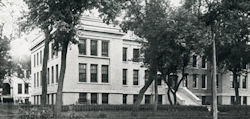 By 1915, the hospital had its new building (shown at left) at 1041 South Street, a block away from the old one. According to the biennial report of 1916, this building included “new and modern office rooms, library, reception rooms, dining rooms, school rooms, laboratory, surgical department complete, and three wards with a capacity of forty beds. … the different floors communicate by inclines instead of stairways.” But the report also includes recommendations for further updates of the other buildings.
By 1915, the hospital had its new building (shown at left) at 1041 South Street, a block away from the old one. According to the biennial report of 1916, this building included “new and modern office rooms, library, reception rooms, dining rooms, school rooms, laboratory, surgical department complete, and three wards with a capacity of forty beds. … the different floors communicate by inclines instead of stairways.” But the report also includes recommendations for further updates of the other buildings.
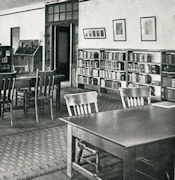 The State Library Commission was in charge of furnishing the new library at right, as well as stocking it with materials and supervising it. The library served both patients and employees. Students of the nursing school established at the hospital would have found many useful materials here. The school started in 1906, provided two years of training, following which some graduates went on to study for higher degrees. The students provided extra help with nursing duties and probably cut down on salaries that would have been paid to full-time staff.
The State Library Commission was in charge of furnishing the new library at right, as well as stocking it with materials and supervising it. The library served both patients and employees. Students of the nursing school established at the hospital would have found many useful materials here. The school started in 1906, provided two years of training, following which some graduates went on to study for higher degrees. The students provided extra help with nursing duties and probably cut down on salaries that would have been paid to full-time staff.
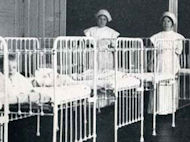 The children’s ward at left looks rather spartan but was probably very easy to keep clean. Patients didn’t necessarily stay in the wards all the time. In addition to fresh air, the doctor’s also promoted the benefits of sunshine and activity. Vocational training was encouraged for those who could manage it. Visitors were permitted for a few hours every day. And the entertainment was provided, especially in later years. For example, in the 1950s, Jock Mahoney, an actor, stuntman, and former stepfather of actress Sally Field, visited with patients in the hospital.
The children’s ward at left looks rather spartan but was probably very easy to keep clean. Patients didn’t necessarily stay in the wards all the time. In addition to fresh air, the doctor’s also promoted the benefits of sunshine and activity. Vocational training was encouraged for those who could manage it. Visitors were permitted for a few hours every day. And the entertainment was provided, especially in later years. For example, in the 1950s, Jock Mahoney, an actor, stuntman, and former stepfather of actress Sally Field, visited with patients in the hospital.
The hospital continued to add buildings and make improvements over the years. In the 1920s a cottage was built for the superintendent, and a separate dormitory was built for the nurses. A dental department was added and the physiotherapy equipment expanded in the 1930s.
Although the hospital admitted and treated 1,587 patients in the 1970-1971 biennium, the 1971 Legislature decided to accept the recommendation of a 1968 study which said the hospital should be closed.
Visit Nebraska Memories to search for or browse through many more historical images digitized from photographs, negatives, postcards, maps, lantern slides, books and other materials.
Nebraska Memories is a cooperative project to digitize Nebraska-related historical and cultural heritage materials and make them available to researchers of all ages via the Internet. Nebraska Memories is brought to you by the Nebraska Library Commission. If your institution is interested in participating in Nebraska Memories, see http://nlc.nebraska.gov/nebraskamemories/participation.aspx for more information, contact Devra Dragos, Technology & Access Services Director.
Posted in Nebraska Memories
Tagged Archive, free, Nebraska, Nebraska Memories, Nebraska Orthopedic Hospital, NLC Blog
Leave a comment
Solar Eclipse Resources Part Two: 54 Days and Counting…
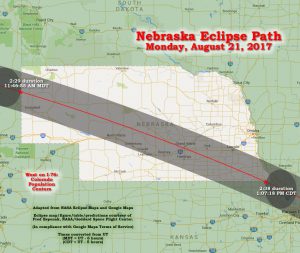 …or 7 weeks, 5 days, 23 hrs, and 14 mins, depending on when you read this of course!
…or 7 weeks, 5 days, 23 hrs, and 14 mins, depending on when you read this of course!
Is your library ready for the celestial event of the century? In 54 days, on August 21, 2017, the shadow of the moon will sweep across the United States from the Pacific Ocean to the Atlantic Ocean in a spectacle that hasn’t occurred in decades. In fact, the last total solar eclipse for the United States was nearly 40 years ago, and the next total eclipse that will be visible in the continental United States will be in 2024. Did you know that Nebraska will be one of the BEST places in the country to view it?
To help your library prepare for this historic event, the Nebraska Library Commission is doing a series of blog posts about resources you can access for your Eclipse programs:
Part 2: Educational Resources
Books & Articles: This section has a great eclipse bibliography for libraries, plus some of the best eclipse related books and articles available for download or purchase: The “All-American” Eclipse: A Guide for Public Libraries and Their Communities, When The Sun Goes Dark: A New, Richly-illustrated Children’s Book on the Science and Fun of Eclipses are just two suggested books available.
Eclipse Videos: In this section, you will find educational videos to educate your library patrons about the 2017 eclipse, courtesy of Exploratorium and Sky & Telescope (each of which has their own great resources). Examples of some of the videos: What is a Solar Eclipse (in English and Spanish), Earth-Sun-Moon Scale Model, and Getting to the 2017 Total Solar Eclipse.
 Eclipse Websites: There are a wide variety of really cool websites in this section! NASA, the National Science Teachers Association, the Fiske Planetarium, the Great American Eclipse, and STARnet to name just a few.
Eclipse Websites: There are a wide variety of really cool websites in this section! NASA, the National Science Teachers Association, the Fiske Planetarium, the Great American Eclipse, and STARnet to name just a few.
Have fun checking out all the resources available, and stay tuned next week for Solar Eclipse Resources Part Three!
Solar Eclipse Countdown: 71 Days and Counting…Part 1
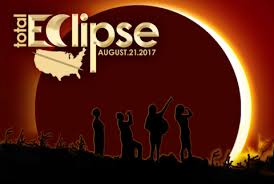 Is your library ready for the celestial event of the century? In 10 weeks, on August 21, 2017, the shadow of the moon will sweep across the United States from the Pacific Ocean to the Atlantic Ocean in a spectacle that hasn’t occurred in decades. In fact, the last total solar eclipse for the United States was nearly 40 years ago, and the next total eclipse that will be visible in the continental United States will be in 2024.
Is your library ready for the celestial event of the century? In 10 weeks, on August 21, 2017, the shadow of the moon will sweep across the United States from the Pacific Ocean to the Atlantic Ocean in a spectacle that hasn’t occurred in decades. In fact, the last total solar eclipse for the United States was nearly 40 years ago, and the next total eclipse that will be visible in the continental United States will be in 2024.
To help your library prepare for this historic event, the Nebraska Library Commission is doing a series of blog posts about resources you can access for your Eclipse programs:
Part 1:
Media Toolkits, where you will find a variety of resources to assist your library in developing educational and promotional materials.

In Images and Videos, you will find lots of pictures for viewing, downloading, and printing out for display. There are also a variety of short clip videos for viewing, downloading, and showing during a program or event.
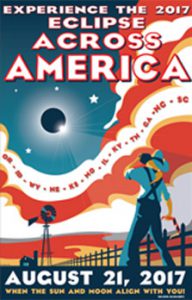 In Downloadables there are posters of various sizes that you can print out for displays.
In Downloadables there are posters of various sizes that you can print out for displays.

And in Media Templates there are Word templates that your library can use to promote your eclipse event to your community: Press Release, Public Service Announcement, Community Letter, and Media Alert.
Just a few things to help get you started with planning library programs for Total Eclipse 2017! Stay tuned for Part 2!
Star Net Eclipse Webinar Series
 Is Your Library Ready for the Astronomical Event of the Decade?
Is Your Library Ready for the Astronomical Event of the Decade?
Star Net is presenting a series of webinars in preparation for the solar eclipse next year.
Next Webinar: Wednesday, October 19th, 2016 at 11:00 am MT, 12:00 CT, 1:00 ET
On August 21, 2017, we will be treated to the first total eclipse of the Sun visible in the continental U.S. in almost 40 years. The spectacular total eclipse will only be visible in a narrow band about 60 miles across, stretching diagonally across the country from a beach in Oregon to a beach in South Carolina. However, everyone in North America will see a partial solar eclipse, where a big “bite” will be taken out of the Sun.
This will be the first major U.S. eclipse of the Internet age, and most people will need clear reliable information on when and how to observe the eclipse of the Sun safely. Astronomers are hoping libraries will play a key role in getting this information out to their communities. Working with astronomy groups in their communities, they could also be a central place for safe observing.
Get an early start in preparing for this eclipse, how to explain it, how to observe it safely, and what role libraries can play in organizing and informing their communities.
Join us for a 45 minute webinar where you’ll get great information about the eclipse, and be able to ask questions about the role your library can play. Hosts: Dennis Schatz (NSTA, Pacific Science Center), and Andrew Fraknoi (Foothill College; co-author of a new book on eclipse education). Click here for an Eclipse FAQ sheet.
To register, please click here. Password is “star”.
Tip #3 for Nebraska Libraries on the Web
 Quick Tip #3: Publicize with Jetpack
Quick Tip #3: Publicize with Jetpack
If you’ve been working to add content to both your website and your social networks, there’s an easier way. In your Dashboard, there’s a section for the Jetpack plugin. Among Jetpack’s settings is the Publicize feature. Just click Configure and you’ll be able to connect your website to Facebook, Twitter, Tumblr, and more. Anything that you add to the site will be automatically pushed out to those social networks, so that your viewers will be able to see all of your announcements and photos, no matter which of your sites they’re using. Jetpack also includes sharing buttons that can be added to your posts, so that your readers can easily share your content on their own social networks.
Learn more about Nebraska Libraries on the Web in our previous Blog posts or contact Craig Lefteroff, or by phone at (402) 471-3106. For more information on the service or to view our current sites, please visit http://libraries.ne.gov/projectblog/.
Posted in Education & Training, General, Technology
Tagged free, Jetpack, Jetpack plugin, Library website, Social Media, technology, Tips, website design, WordPress
Leave a comment
Tip #2 for Nebraska Libraries on the Web
Quick Tip #2: Create a page that points directly to another website
When you add a new page to your site (by going to Pages -> Add New), WordPress assumes that you’re creating a new standalone page to add to your site. But you can also create an empty “placeholder” page that will send visitors out to another website—say, your Facebook page or the website for your town or county. To do this, simply scroll down to the bottom of the screen and, in the Page Links To section, choose A Custom URL. Once you have your new “page” created, you can easily add it to your site’s menu!
Learn more about Nebraska Libraries on the Web in our previous Blog posts or contact Craig Lefteroff, or by phone at (402) 471-3106. For more information on the service or to view our current sites, please visit http://libraries.ne.gov/projectblog/.
Posted in Education & Training, General, Technology
Tagged free, Library, Nebraska Libraries on the Web, technology, Tips, website design, WordPress
Leave a comment
Get Your Library Ready for the Total Solar Eclipse — August 21, 2017
 Are you ready for the celestial event of the century? In just over a year from now (August 21, 2017), the shadow of the moon will sweep across the United States from the Pacific Ocean to the Atlantic Ocean in a spectacle that hasn’t occurred in 99 years! The National Center for Interactive Learning (NCIL) at the Space Science Institute has recently been awarded a grant for its NASA@ My Library program. Partners include NASA, ALA, The Girl Scouts, SETI, and many other organizations. The STAR Library Education Network (STAR_Net) is managed by NCIL. The STAR_Net team wants to work with your library and thousands of others to participate in this national event. Some fortunate libraries will be able to experience a total solar eclipse though every library in the country will observe at least a partial eclipse.
Are you ready for the celestial event of the century? In just over a year from now (August 21, 2017), the shadow of the moon will sweep across the United States from the Pacific Ocean to the Atlantic Ocean in a spectacle that hasn’t occurred in 99 years! The National Center for Interactive Learning (NCIL) at the Space Science Institute has recently been awarded a grant for its NASA@ My Library program. Partners include NASA, ALA, The Girl Scouts, SETI, and many other organizations. The STAR Library Education Network (STAR_Net) is managed by NCIL. The STAR_Net team wants to work with your library and thousands of others to participate in this national event. Some fortunate libraries will be able to experience a total solar eclipse though every library in the country will observe at least a partial eclipse.
So jump on the eclipse train!
Go to: Eclipse Registration to register your library.
We will, in turn, let you know how to access the following valuable resources:
· Vetted Multimedia for Programming/Promotion (Images, Video, Animations, Artwork)
· Media Template Package (Press Release, PSA, Community Letter, Media Alert)
· Private Eclipse Forum (registered libraries)
· Inclusion in Special Eclipse Promotions (Social Media, Blogs, Newsletters, etc.)
· Enrollment in STAR_Net’s Eclipse Newsletter
When your eclipse event is planned, you can share your press release, flyer, website link, or like material with us to receive 50 free Solar Shades for your patrons to watch along with us! (shades are available on a first come, first serve basis).
The STAR Library Education Network (STAR_Net) is supported by a grant from the National Science Foundation and other funders. STAR stands for Science-Technology Activities and Resources. This ground-breaking program includes a traveling STEM exhibition program, the development of STEM activities for public libraries, a comprehensive training program that includes in-person workshops and webinars, the development of the STAR_Net Online Community, and a research and evaluation program. STAR_Net is led by the Space Science Institute’s National Center for Interactive Learning. Partners include the American Library Association, Lunar and Planetary Institute, and the Afterschool Alliance along with many other organizations.
Posted in Books & Reading, Education & Training, General, Information Resources, Library Management, Programming, Uncategorized, What's Up Doc / Govdocs
Tagged 2017 Solar Eclipse Library Programing, free, Library Programing, Nebraska, public Library, Solar Eclipse, Total Eclipse 2017
Leave a comment
Nebraska Libraries on the Web
Imagine that a new resident has just arrived in your town. She’s eager to read the new Ruth Ware novel, but isn’t familiar with your library, so she hits the Internet to search for you. What does she find? What would you like for her to find?
Nebraska Libraries on the Web is a free service open to any public library in Nebraska. We use the WordPress platform to create robust and user-friendly library websites. Our sites are controlled by “themes” that modify the display of your site, meaning that your content will be presented in an appealing fashion automatically. You don’t have to worry about coding, just add text and images that tell the world about your library. For those who wish to alter aspects of their site’s theme, controls are available that allow you to tweak your font, colors, and more. You can even change your entire theme with one click to give your site a brand new appearance.
Because WordPress is so widely used, it’s not surprising that it works well with the biggest names on the Internet. Your site will arrive ready to connect to Facebook, Pinterest, and more. Any content that you add to your website can be automatically posted to your social networks, too. If you use Google Calendar, you can incorporate that directly into your new site, or use add-on tools called plugins to create a new calendar that displays your library’s events. Plugins also allow you to create surveys, contact forms, and forums, and host them all on your site. There’s probably a plugin for anything that you’d like to do with your site and Commission staff are available to assist you in tracking down the right tools. We also take care of software updates and security concerns, so you never have to worry about maintenance.
If this sounds like an approach that might work for your library, please contact Craig Lefteroff, or by phone at (402) 471-3106. For more information on the service or to view our current sites, please visit http://libraries.ne.gov/projectblog/.
Free Webinars in June
Thirty two great programs are on the list of Free Webinars for June. The subjects run the gamut, and there’s some fine learning to be had.
Are you interested in brushing up your management skills? Check out:
- Leading Your Own Life: A New Approach to Employee Engagement (American Management Association)
- Blueprint for Innovation Leadership: How to Drive Sustainable Growth (American Management Association)
- Servant Leadership: Creating Culture and Sustaining Performance (American Management Association)
- New Lessons in Library Leadership (Public Library Association)
- Five Secrets for Delivering Engaging Online Presentations (American Management Association)
Would you like to emphasize customer service? Here are some programs that you’ll find useful:
- Gaming and Seniors (Texas State Library & Archives)
- An Overview of Working with Senior Patrons and Technology (Texas State Library & Archives)
- Providing Services to People with Disabilities: Creating a Welcoming Environment (Texas State Library & Archives)
- Providing Services to People with Disabilities: Accessibility and Accessible Information Technology (Texas State Library & Archives)
Are you interested in information resources?
- World Bank Data and Research: Opening the Vault (World Bank and Library Journal)
- Craft Essentials (Creative Publishing International, Potter Craft, Tuttle Publishing, Taunton Press, Brodart, and Library Journal)
- The Census: American Community Survey – We Measure Your Community Annually (Infopeople)
Looking to check out some new technology? There are 5 Webinars for you:
- Wanna get hAPPy? Using the iPad in Schools and Libraries (NCompass LIve)
- Ten Tips for Using Social Media, with Scott Brown (LE@D)
- Bozarthzone! Nuts and Bolts of Social Media (insync training)
- Tech Talk with Michael Sauers (Nebraska Library Commission)
- Copyright Law Update 2011: Ebooks, Google Books, Patron Requests and New International Developments (Infopeople)
Do you have a special project you’d like to get grant funding for? These programs might help:
- Introduction to Fundraising Planning (Grant Space)
- Grantseeking Basics (Grant Space)
- Introduction to Finding Funders (Grant Space)
- Proposal Writing Basics (Grant Space)
- Guide to Online Grantseeker Resources (Grant Space)
- Proposal Budgeting Basics (Grant Space)
- Ten Best Practices for End of Year Fundraising (Common Knowledge)
Would you like to catalog more efficiently? How about:
- Cataloging Efficiencies That Make a Difference (WebJunction)
- Pioneer’s Progress (NCompass Live)
Are you hoping to build a new library?
- A Tour of Four Library Journal New Landmark Libraries Humphries Poli Architects, Meyer Scherer & Rockcastle, Ltd., Frye Gillian Molinaro Architects, Barker Rinker Seacat Architecture, and Library Journal)
- Libraries are Essential: Building an Ongoing Connection (Library Journal)
Are you developing and promoting your collection?
- Fresh Voices for Teen Readers (Booklist)
- Booktalks With a Bang (Nebraska Library Commission)
- What’s New in Audiobooks (Booklist)
And here’s a day-long symposium—for free!—discussing how social and technology trends are changing libraries.
Yale Library Research Education Symposium: Change and Tensions in Teaching and Technology (Lyrasis)
